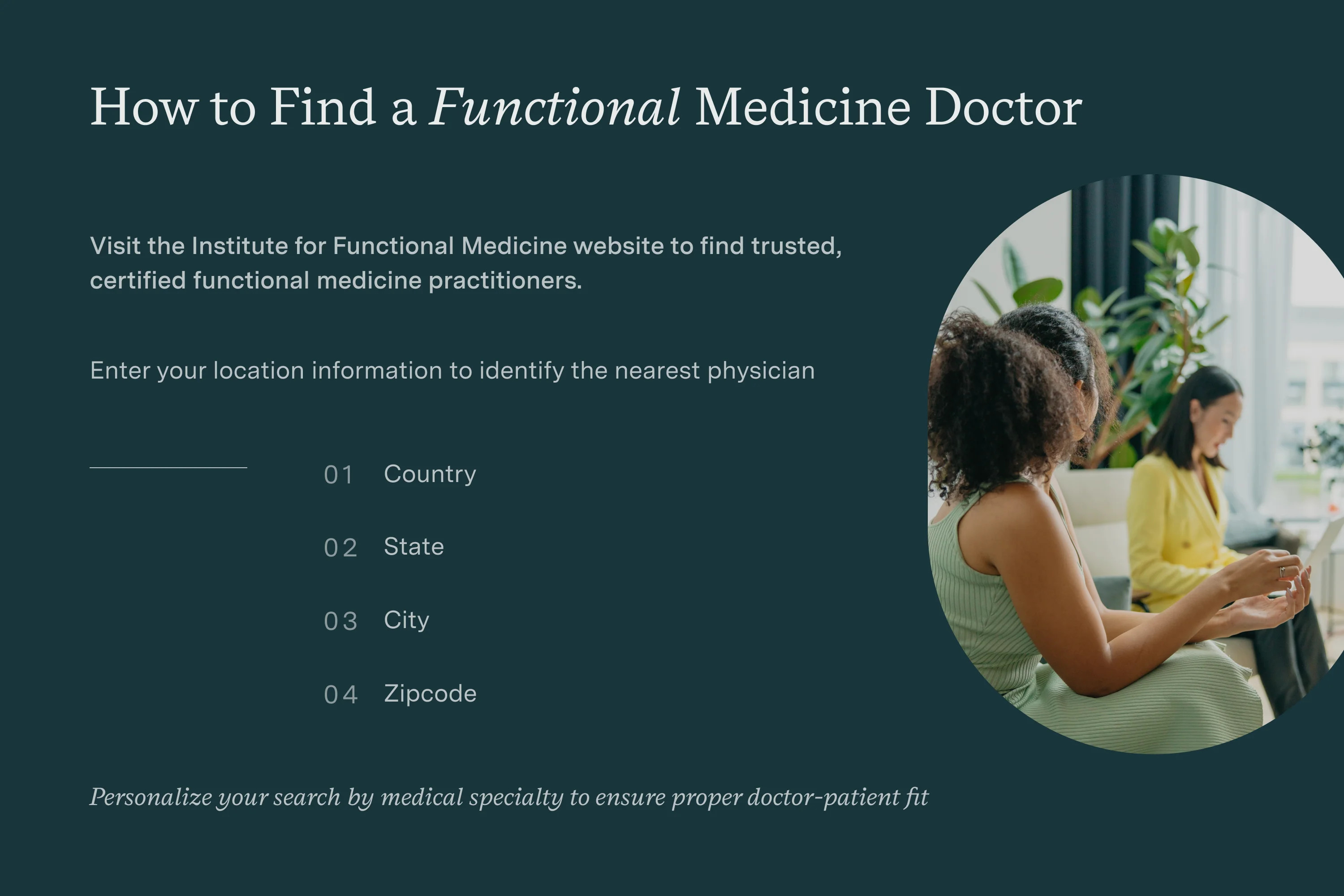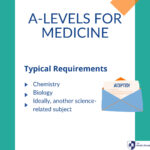Finding a good functional medicine doctor starts with understanding their holistic approach. At thebootdoctor.net, we’re dedicated to guiding you through this process, ensuring you find a healthcare provider who addresses the root causes of your health concerns, especially those related to foot health. Discover the benefits of personalized care and explore how functional medicine can revolutionize your well-being.
1. What is Functional Medicine and How Can It Benefit Me?
Functional medicine is a patient-centered approach that focuses on identifying and addressing the root causes of disease. Unlike conventional medicine, which often treats symptoms, functional medicine considers the whole person—genes, lifestyle, and environment—to create a personalized treatment plan.
Functional medicine can benefit you by offering:
- Personalized Care: Tailored treatments that address your unique needs.
- Root Cause Analysis: Identifying and treating the underlying causes of your health issues.
- Comprehensive Approach: Considering all aspects of your health, including nutrition, lifestyle, and environmental factors.
According to the Institute for Functional Medicine (IFM), this approach can lead to improved health outcomes and a higher quality of life.
 two peoplepointing at a nutritional handout
two peoplepointing at a nutritional handout
1.1 The Core Principles of Functional Medicine
Functional medicine operates on several core principles:
- Patient-Centered Care: Focusing on individual needs and preferences.
- Systems-Oriented Approach: Viewing the body as an interconnected system.
- Dynamic Balance: Understanding the interplay between internal and external factors.
- Root Cause Resolution: Identifying and addressing the underlying causes of disease.
- Integrative Approach: Combining conventional and alternative therapies.
These principles guide functional medicine practitioners in developing personalized treatment plans.
1.2 How Functional Medicine Differs From Conventional Medicine
Conventional medicine typically focuses on treating symptoms with medication or surgery. Functional medicine, on the other hand, seeks to identify and address the root causes of illness by considering the patient’s entire health history, lifestyle, and environment.
| Feature | Functional Medicine | Conventional Medicine |
|---|---|---|
| Focus | Root cause of disease | Symptom management |
| Approach | Holistic, personalized | Standardized, disease-specific |
| Treatment | Lifestyle changes, nutrition, targeted therapies | Medication, surgery |
| Patient Role | Active participant in care | Passive recipient of treatment |
| Doctor’s Role | Partner, coach | Authority, prescriber |
| Time Allotment | Longer consultations, in-depth assessment | Shorter appointments, quick diagnosis |
By addressing the root causes of health issues, functional medicine aims to achieve long-term wellness rather than just temporary relief.
1.3 The Growing Popularity of Functional Medicine
Functional medicine is gaining popularity as more people seek personalized and holistic healthcare solutions. A study published in the Journal of the American Medical Association found that patients who received functional medicine care reported significant improvements in their quality of life.
The rise of chronic diseases and the increasing awareness of the impact of lifestyle factors on health have also contributed to the growing demand for functional medicine practitioners.
2. What Conditions Can a Functional Medicine Doctor Treat?
Functional medicine doctors can treat a wide range of conditions, including chronic diseases, autoimmune disorders, digestive issues, and hormonal imbalances. Their holistic approach allows them to address the underlying causes of these conditions, leading to more effective and sustainable outcomes.
Functional medicine doctors often work with patients experiencing:
- Chronic Fatigue Syndrome: Addressing underlying factors like mitochondrial dysfunction.
- Autoimmune Diseases: Identifying triggers and modulating the immune system.
- Digestive Disorders: Optimizing gut health and addressing food sensitivities.
- Hormonal Imbalances: Balancing hormones through nutrition and lifestyle changes.
- Metabolic Syndrome: Improving insulin sensitivity and reducing inflammation.
2.1 Functional Medicine for Foot and Ankle Problems
Functional medicine can also be applied to foot and ankle problems. By considering factors such as nutrition, biomechanics, and lifestyle, a functional medicine doctor can develop a comprehensive treatment plan for conditions like:
- Plantar Fasciitis: Addressing inflammation and biomechanical imbalances.
- Achilles Tendinitis: Promoting healing through targeted nutrition and exercises.
- Bunions: Correcting biomechanical issues and reducing inflammation.
- Neuropathy: Improving nerve function through nutritional support and lifestyle changes.
- Arthritis: Managing inflammation and supporting joint health.
 a doctor holding a syringe
a doctor holding a syringe
2.2 Integrating Functional Medicine with Podiatric Care
Integrating functional medicine with podiatric care can provide a more comprehensive approach to foot and ankle health. A podiatrist can address structural issues and provide immediate relief, while a functional medicine doctor can address underlying factors that contribute to chronic conditions.
This integrated approach may involve:
- Biomechanical Assessments: Analyzing gait and foot structure.
- Nutritional Support: Recommending supplements and dietary changes.
- Lifestyle Modifications: Suggesting exercises and stress-reduction techniques.
- Targeted Therapies: Using modalities like acupuncture and massage.
- Collaboration: Podiatrists and functional medicine doctors working together.
2.3 Success Stories in Functional Medicine
Many patients have experienced significant improvements in their health through functional medicine. For example, a patient with chronic plantar fasciitis may find relief through a combination of custom orthotics from a podiatrist and dietary changes and exercises recommended by a functional medicine doctor.
Another success story involves a patient with diabetic neuropathy who improved nerve function and reduced pain through a combination of medication, nutritional support, and lifestyle changes.
3. How to Find a Qualified Functional Medicine Doctor
Finding a qualified functional medicine doctor requires careful research and consideration. Look for practitioners who are certified by reputable organizations and have experience treating your specific condition.
Key steps in finding a qualified functional medicine doctor:
- Check Certification: Verify that the doctor is certified by the Institute for Functional Medicine (IFM) or another reputable organization.
- Review Credentials: Look for advanced training and experience in functional medicine.
- Read Reviews: Check online reviews and testimonials from other patients.
- Schedule a Consultation: Meet with the doctor to discuss your health concerns and treatment options.
- Ask Questions: Inquire about their approach to functional medicine and their experience treating your condition.
3.1 Verifying Credentials and Certifications
To ensure that you are working with a qualified functional medicine doctor, verify their credentials and certifications. The Institute for Functional Medicine (IFM) is the leading certifying body for functional medicine practitioners.
Other reputable organizations that offer certifications in functional medicine include:
- American Board of Integrative Medicine (ABOIM)
- Academy of Integrative Health & Medicine (AIHM)
- Functional Medicine Coaching Academy (FMCA)
3.2 Using Online Directories and Resources
Online directories and resources can help you find functional medicine doctors in your area. The IFM’s Practitioner Finder is a valuable tool for locating certified functional medicine doctors.
Other online resources include:
- The American Academy of Anti-Aging Medicine (A4M)
- The Institute for Integrative Nutrition (IIN)
- Local Holistic Health Directories
3.3 Questions to Ask During Your Initial Consultation
During your initial consultation with a functional medicine doctor, ask questions to determine if they are the right fit for you. Some important questions to ask include:
- What is your approach to functional medicine?
- What experience do you have treating my condition?
- What tests do you typically order?
- What is your treatment philosophy?
- How do you monitor progress?
- What are your fees and payment options?
- Do you collaborate with other healthcare providers?
4. What to Expect During Your First Functional Medicine Appointment
Your first functional medicine appointment will be more comprehensive than a typical doctor’s visit. Be prepared to discuss your health history, lifestyle, and current symptoms in detail.
Typical components of a first functional medicine appointment:
- Comprehensive Health History: Detailed review of your medical history, including past illnesses, surgeries, and medications.
- Lifestyle Assessment: Discussion of your diet, exercise habits, stress levels, and sleep patterns.
- Symptom Evaluation: Detailed assessment of your current symptoms and health concerns.
- Physical Exam: Thorough physical examination to assess your overall health.
- Lab Testing: Ordering of specialized lab tests to identify underlying imbalances and deficiencies.
4.1 Detailed Health History and Assessment
The functional medicine doctor will spend a significant amount of time gathering information about your health history and lifestyle. Be prepared to answer detailed questions about your diet, exercise habits, stress levels, sleep patterns, and past medical history.
This comprehensive assessment helps the doctor understand the complex factors that may be contributing to your health issues.
4.2 Specialized Lab Testing
Functional medicine doctors often order specialized lab tests to identify underlying imbalances and deficiencies. These tests may include:
- Nutrient Testing: Assessing levels of vitamins, minerals, and antioxidants.
- Hormone Testing: Evaluating hormone levels and imbalances.
- Gut Health Testing: Analyzing gut bacteria and digestive function.
- Food Sensitivity Testing: Identifying food sensitivities and intolerances.
- Genetic Testing: Assessing genetic predispositions to certain conditions.
4.3 Developing a Personalized Treatment Plan
Based on the information gathered during your initial consultation and lab testing, the functional medicine doctor will develop a personalized treatment plan. This plan may include:
- Dietary Changes: Recommendations for specific foods to eat or avoid.
- Supplementation: Targeted use of vitamins, minerals, and herbs.
- Lifestyle Modifications: Suggestions for exercise, stress reduction, and sleep improvement.
- Detoxification: Strategies to remove toxins from the body.
- Mind-Body Therapies: Techniques like meditation, yoga, and acupuncture.
 how to find a functional medicine doctor infographic
how to find a functional medicine doctor infographic
5. The Role of Nutrition in Functional Medicine
Nutrition plays a critical role in functional medicine. A functional medicine doctor will assess your dietary habits and recommend changes to support your overall health and address any underlying imbalances.
Key aspects of nutrition in functional medicine:
- Whole Foods Diet: Emphasizing nutrient-dense, whole foods.
- Elimination Diets: Identifying food sensitivities and intolerances.
- Macronutrient Balance: Balancing protein, carbohydrates, and fats.
- Micronutrient Optimization: Ensuring adequate intake of vitamins and minerals.
- Personalized Nutrition Plans: Tailoring dietary recommendations to individual needs.
5.1 Identifying Food Sensitivities and Intolerances
Food sensitivities and intolerances can contribute to a variety of health issues, including digestive problems, skin conditions, and fatigue. Functional medicine doctors use elimination diets and specialized testing to identify these sensitivities and develop personalized nutrition plans.
Common food sensitivities include:
- Gluten
- Dairy
- Soy
- Eggs
- Corn
5.2 Creating a Personalized Nutrition Plan
A functional medicine doctor will work with you to create a personalized nutrition plan that addresses your specific needs and health goals. This plan may include:
- Meal Plans: Providing specific meal ideas and recipes.
- Shopping Lists: Recommending healthy foods to purchase.
- Cooking Tips: Offering advice on preparing nutritious meals.
- Supplement Recommendations: Suggesting vitamins, minerals, and herbs.
- Ongoing Support: Providing guidance and encouragement along the way.
5.3 The Impact of Diet on Foot Health
Diet can have a significant impact on foot health. A nutrient-rich diet can support healthy bones, muscles, and nerves in the feet, while a poor diet can contribute to inflammation and other problems.
Specific nutrients that are important for foot health include:
- Calcium: Essential for strong bones.
- Vitamin D: Supports calcium absorption.
- Vitamin C: Promotes collagen production.
- Omega-3 Fatty Acids: Reduce inflammation.
- Magnesium: Supports muscle and nerve function.
6. Lifestyle Modifications and Stress Management
Lifestyle modifications and stress management are integral components of functional medicine. A functional medicine doctor will assess your lifestyle habits and recommend changes to support your overall health and well-being.
Important lifestyle modifications include:
- Regular Exercise: Promoting physical fitness and reducing stress.
- Adequate Sleep: Ensuring sufficient rest for optimal health.
- Stress Reduction Techniques: Implementing strategies to manage stress.
- Hydration: Drinking enough water to support bodily functions.
- Mindfulness Practices: Engaging in meditation, yoga, and other mindfulness techniques.
6.1 The Importance of Exercise for Foot Health
Regular exercise is essential for foot health. Exercise can improve circulation, strengthen muscles, and reduce inflammation in the feet and ankles.
Recommended exercises for foot health include:
- Walking: Promoting circulation and strengthening muscles.
- Stretching: Improving flexibility and range of motion.
- Strengthening Exercises: Building strength in the feet and ankles.
- Yoga: Enhancing flexibility, balance, and mindfulness.
- Swimming: Providing low-impact exercise for the feet and ankles.
6.2 Stress Reduction Techniques
Stress can have a negative impact on foot health, contributing to inflammation and pain. Functional medicine doctors recommend stress reduction techniques to promote relaxation and reduce stress levels.
Effective stress reduction techniques include:
- Meditation: Calming the mind and reducing stress.
- Yoga: Combining physical postures, breathing exercises, and meditation.
- Deep Breathing Exercises: Relaxing the body and reducing stress.
- Massage Therapy: Relieving muscle tension and reducing stress.
- Spending Time in Nature: Promoting relaxation and reducing stress.
6.3 The Mind-Body Connection
Functional medicine recognizes the importance of the mind-body connection. Mental and emotional factors can impact physical health, and vice versa. Functional medicine doctors often incorporate mind-body therapies into their treatment plans to address this connection.
Mind-body therapies include:
- Acupuncture: Stimulating specific points on the body to promote healing.
- Biofeedback: Learning to control physiological responses.
- Hypnosis: Using guided imagery to promote relaxation and healing.
- Cognitive Behavioral Therapy (CBT): Changing negative thought patterns and behaviors.
- Art Therapy: Expressing emotions through creative activities.
7. How A Root Cause Approach Can Heal
Functional medicine emphasizes a root cause approach to addressing health issues. This means identifying and treating the underlying causes of disease rather than just managing the symptoms.
Key aspects of a root cause approach:
- Comprehensive Assessment: Gathering detailed information about your health history and lifestyle.
- Specialized Testing: Identifying underlying imbalances and deficiencies.
- Personalized Treatment Plan: Addressing the root causes of your health issues.
- Ongoing Support: Providing guidance and encouragement along the way.
- Long-Term Wellness: Achieving sustainable health and well-being.
7.1 Identifying Underlying Imbalances
Functional medicine doctors use specialized testing to identify underlying imbalances that may be contributing to your health issues. These imbalances may include:
- Nutrient Deficiencies
- Hormone Imbalances
- Gut Dysbiosis
- Inflammation
- Toxicity
7.2 Addressing the Root Causes of Chronic Disease
By addressing the root causes of chronic disease, functional medicine aims to achieve long-term wellness rather than just temporary relief. This approach may involve:
- Dietary Changes: Recommending specific foods to eat or avoid.
- Supplementation: Targeted use of vitamins, minerals, and herbs.
- Lifestyle Modifications: Suggesting exercise, stress reduction, and sleep improvement.
- Detoxification: Strategies to remove toxins from the body.
- Mind-Body Therapies: Techniques like meditation, yoga, and acupuncture.
7.3 The Benefits of a Holistic Approach
A holistic approach to healthcare considers all aspects of your health, including physical, mental, and emotional factors. This approach can lead to more effective and sustainable outcomes than traditional medical care.
Benefits of a holistic approach include:
- Improved Overall Health
- Reduced Symptoms
- Increased Energy
- Better Sleep
- Enhanced Quality of Life
 a person holding a bunch of lettuce
a person holding a bunch of lettuce
8. Functional Medicine for Autoimmune Diseases
Functional medicine can be particularly helpful for individuals with autoimmune diseases. By identifying triggers and modulating the immune system, functional medicine aims to reduce inflammation and improve overall health.
Key aspects of functional medicine for autoimmune diseases:
- Identifying Triggers: Determining factors that may be contributing to the autoimmune response.
- Modulating the Immune System: Using therapies to balance and regulate the immune system.
- Reducing Inflammation: Implementing strategies to reduce inflammation throughout the body.
- Supporting Gut Health: Optimizing gut bacteria and digestive function.
- Personalized Treatment Plans: Tailoring treatments to individual needs.
8.1 Identifying Triggers and Modulating the Immune System
Functional medicine doctors use specialized testing to identify triggers that may be contributing to the autoimmune response. These triggers may include:
- Food Sensitivities
- Infections
- Toxins
- Stress
By identifying and addressing these triggers, functional medicine aims to modulate the immune system and reduce inflammation.
8.2 Reducing Inflammation and Supporting Gut Health
Inflammation plays a key role in autoimmune diseases. Functional medicine doctors recommend strategies to reduce inflammation throughout the body, including:
- Anti-Inflammatory Diet: Emphasizing foods that reduce inflammation.
- Supplementation: Targeted use of anti-inflammatory supplements.
- Lifestyle Modifications: Suggesting exercise, stress reduction, and sleep improvement.
Supporting gut health is also essential for managing autoimmune diseases. Functional medicine doctors recommend strategies to optimize gut bacteria and digestive function, including:
- Probiotics: Supplementing with beneficial bacteria.
- Prebiotics: Consuming foods that feed beneficial bacteria.
- Digestive Enzymes: Supporting digestive function.
- Elimination Diets: Identifying and avoiding food sensitivities.
8.3 The Importance of Personalized Treatment Plans
Functional medicine recognizes that each individual with an autoimmune disease is unique. Functional medicine doctors develop personalized treatment plans that address the specific needs and health goals of each patient.
These treatment plans may include:
- Dietary Changes
- Supplementation
- Lifestyle Modifications
- Detoxification
- Mind-Body Therapies
9. How to Get Ongoing Root Cause Support
Getting ongoing root cause support is essential for achieving long-term wellness. Functional medicine doctors provide ongoing support and guidance to help you stay on track with your treatment plan.
Key aspects of ongoing root cause support:
- Regular Follow-Up Appointments: Monitoring progress and making adjustments to your treatment plan.
- Nutritional Counseling: Providing guidance and support for dietary changes.
- Lifestyle Coaching: Helping you implement lifestyle modifications.
- Stress Management Techniques: Teaching you strategies to manage stress.
- Educational Resources: Providing information and resources to help you understand your condition.
9.1 Regular Follow-Up Appointments
Regular follow-up appointments are essential for monitoring your progress and making adjustments to your treatment plan. During these appointments, the functional medicine doctor will assess your symptoms, review your lab results, and make any necessary changes to your treatment plan.
9.2 Nutritional Counseling and Lifestyle Coaching
Nutritional counseling and lifestyle coaching can help you stay on track with your dietary changes and lifestyle modifications. A functional medicine doctor or health coach can provide guidance, support, and encouragement to help you achieve your health goals.
9.3 Building Your Care Team
Building a care team that supports your health goals is essential for long-term wellness. This team may include:
- Functional Medicine Doctor
- Podiatrist
- Nutritionist
- Health Coach
- Massage Therapist
- Acupuncturist
- Chiropractor
10. FAQs About Finding a Good Functional Medicine Doctor
Here are some frequently asked questions about finding a good functional medicine doctor:
- What is functional medicine?
Functional medicine is a patient-centered approach that focuses on identifying and addressing the root causes of disease. - How does functional medicine differ from conventional medicine?
Functional medicine seeks to identify and address the root causes of illness, while conventional medicine typically focuses on treating symptoms with medication or surgery. - What conditions can a functional medicine doctor treat?
Functional medicine doctors can treat a wide range of conditions, including chronic diseases, autoimmune disorders, digestive issues, and hormonal imbalances. - How do I find a qualified functional medicine doctor?
Look for practitioners who are certified by reputable organizations, have experience treating your specific condition, and have positive reviews from other patients. - What should I expect during my first functional medicine appointment?
Your first appointment will be more comprehensive than a typical doctor’s visit. Be prepared to discuss your health history, lifestyle, and current symptoms in detail. - How much does functional medicine cost?
Functional medicine can be more expensive than conventional medicine due to the comprehensive assessments and specialized testing involved. - Is functional medicine covered by insurance?
Some insurance plans may cover functional medicine services, but coverage varies. Check with your insurance provider to determine your coverage. - How long does it take to see results from functional medicine?
The time it takes to see results from functional medicine varies depending on the individual and the condition being treated. Some people may experience improvements within weeks, while others may take several months. - Can functional medicine help with foot and ankle problems?
Yes, functional medicine can be applied to foot and ankle problems by considering factors such as nutrition, biomechanics, and lifestyle. - Where can I find more information about functional medicine?
You can find more information about functional medicine on the Institute for Functional Medicine (IFM) website, as well as on thebootdoctor.net.
At thebootdoctor.net, we are committed to providing you with the information and resources you need to make informed decisions about your health. Explore our website to learn more about foot health and how functional medicine can help you achieve long-term wellness.
Address: 6565 Fannin St, Houston, TX 77030, United States
Phone: +1 (713) 791-1414
Website: thebootdoctor.net
Take the first step towards optimal foot health. Visit thebootdoctor.net today to explore our comprehensive resources and connect with experienced professionals who can help you achieve lasting relief and well-being.

